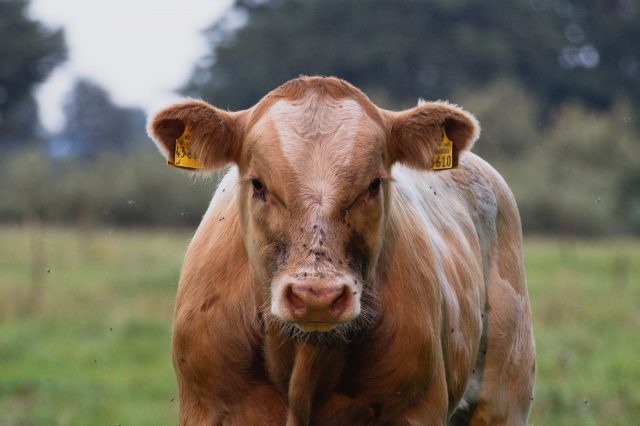New Surveillance Network Aims to Serve Canada’s Cow-Calf Industry

A new and timely research network being established this spring will provide the nation’s cow-calf industry with benchmark data to help with planning and management
By Owen Roberts – Real Agriculture
The Canadian Cow-Calf Surveillance Network is described as “a network of herds across the country that reflects the industry.”
The network will involve 175 producers across Canada and a dozen researchers from the universities of Saskatchewan (its home base), Calgary, Guelph, and Montreal. It’s a national version of the Western Canadian network based out of the University of Saskatchewan, which operated through to 2018, and an expanded version of an Ontario study in 2017 by University of Guelph professor Jessica Gordon.
“The network will be a critical resource that can be readily accessed to provide very timely and efficient answers to a variety of emerging questions”
Through surveys and on-farm visits, researchers will gather information on topics such as biosecurity practices, economics of production-limiting diseases, animal welfare practices, antibiotic use and herd nutrition and management.It’s all designed to help producers sustain and improve their farms and ranches. The Canadian beef industry contributes about $17 billion annually to the GDP and generates about 230,000 jobs across the country. It also represents 15 per cent of all farm cash receipts in Canada. Two-thirds of farms have 125 cows or less, resulting in an industry with many small, family-run operations.
Gordon is working with 30 producers in the Ontario portion of the network. She says that besides gathering information from producers, the network will also serve as a conduit for information sharing – for best management practices throughout the study’s duration, and for research results once data is collected.
She says surveillance systems like the new network can provide production parameter estimates to help producers prioritize investment in research and risk management.
For example, before a study in 2012, researchers were unsure if there was evidence of anthelmintic (dewormer) resistance in Ontario cattle.
“We showed there was, but we still don’t know the level of resistance seen in the commercial cattle population,” says Gordon. “By collecting samples from enrolled herds, we can quantify the problem and develop management recommendations to help control parasites and maintain efficacy in deworming products. This can help producers be more productive.”
Much of this information is timely for producers and for the industry itself, as it’s increasingly called on by decision makers and consumers to answer production questions. In that way, the surveillance network will also have an educational role, says Gordon.
“The network will be a critical resource that can be readily accessed to provide very timely and efficient answers to a variety of emerging questions, and better target recommendations in the many areas that affect producers,” she says. “It’s designed to help the industry stay competitive globally.”
The network has received five years of funding from the Beef Cattle Research Council and the Saskatchewan Ministry of Agriculture and Food. Gordon expects other provinces to join as the network develops.
Organizers have now identified about 80 per cent of the participants and will be conducting their first survey in May. It will consist of five questions meant to establish foundational information such as herd size and certain management practices.
Any producers who want to participate should have a minimum of 40 breeding animals and anticipate maintaining a cow-calf operation for the next five years. Other criteria apply as well. Contact project coordinator Sharlene April for details.
Owen Roberts directs research communications and teaches at the University of Guelph, and is president of the International Federation of Agricultural Journalists. You can find him on Twitter as @theurbancowboy












